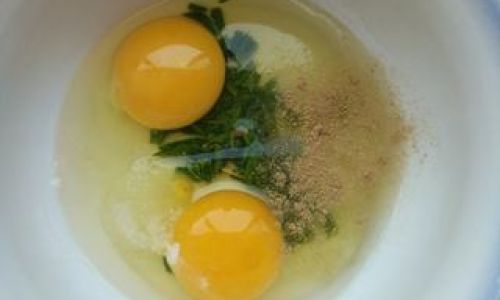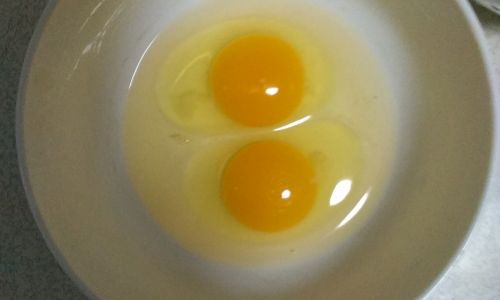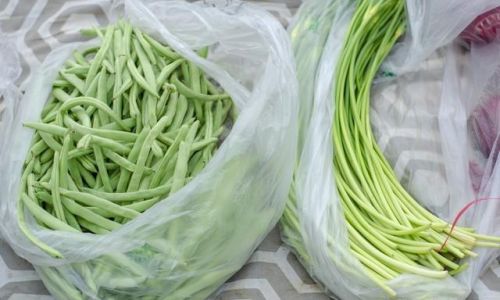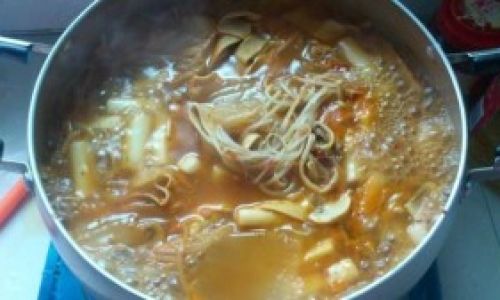Introduction
Eggs, often hailed as the quintessential kitchen staple, are a versatile ingredient that can transform into a myriad of culinary delights. From breakfast classics to gourmet dinners, eggs offer a canvas for creativity and flavor. Their rich texture, delicate taste, and nutritional benefits make them an indispensable part of any cook’s repertoire. This comprehensive guide aims to unlock the myriad ways in which eggs can be used to create mouthwatering dishes, catering to both novice cooks and seasoned chefs alike. We’ll explore traditional recipes, innovative twists, and practical tips to help you master the art of crafting culinary wonders with eggs.
Understanding the Basics: Types and Quality
Before diving into the recipes, it’s crucial to understand the different types of eggs available and how to select high-quality ones.

Types of Eggs:
- Free-Range Eggs: These come from chickens that have access to outdoors, often resulting in eggs with richer flavors due to the chickens’ varied diet.
- Organic Eggs: Certified organic eggs come from chickens fed organic feed without antibiotics or hormones.
- Pasture-Raised Eggs: Similar to free-range, but with a stronger emphasis on the chickens’ outdoor access and natural diet.
- Conventional Eggs: These are produced in standard farming conditions, often in cages, and are the most widely available and affordable.
Selecting Quality Eggs:
- Freshness: Check the packaging date or, if buying from a farm, ask when the eggs were laid. Fresh eggs have a thicker, more opaque whites and a firmer yolk.
- Appearance: Look for clean, uncracked shells with a slightly matte finish.
- Storage: Store eggs in their original carton in the coldest part of your refrigerator, ideally not on the door where temperature fluctuations occur.
Fundamental Techniques: Boiling, Frying, Poaching, and Baking
Mastering fundamental egg-cooking techniques is the cornerstone of creating delicious egg-based dishes.
Boiling Eggs:
- Soft-Boiled: Place eggs in boiling water and cook for 4-5 minutes. Run under cold water to stop the cooking process. Peel and serve.
- Hard-Boiled: Boil eggs for 9-12 minutes, then plunge into ice water. Peel and use for salads, deviled eggs, or snacks.
Frying Eggs:
- Sunny-Side Up: Heat a non-stick pan with butter or oil. Crack eggs directly into the pan and cook until whites are set but yolks are still runny.
- Over Easy: Cook eggs sunny-side up until whites are mostly set, then flip gently and cook for another 30 seconds.
- Over Hard: Continue cooking the flipped egg until the yolk is fully set.
Poaching Eggs:

- Bring a pot of water to a gentle simmer. Add a splash of vinegar to help the eggs hold their shape.
- Crack an egg into a small bowl or ramekin.
- Create a gentle whirlpool in the water using a spoon and carefully slide the egg into the center.
- Cook for 3-4 minutes for a runny yolk or longer for a firmer yolk. Remove with a slotted spoon and drain on paper towels.
Baking Eggs:
- Preheat your oven to 350°F (175°C).
- Prepare a baking dish with greased ramekins or a single larger dish.
- Add your desired fillings (such as spinach, tomatoes, cheese, or meat) and crack an egg into each.
- Bake for 10-15 minutes, or until whites are set but yolks are still slightly runny.
Classic Recipes: Timeless Delights
Let’s dive into some timeless recipes that showcase the beauty of eggs in traditional dishes.
Scrambled Eggs:
- Ingredients: 2-4 large eggs, salt, pepper, butter or oil, milk or cream (optional).
- Method: Beat eggs with a pinch of salt and pepper in a bowl. Optionally, add a splash of milk or cream for creaminess. Heat butter or oil in a non-stick pan over medium heat. Pour in eggs and stir gently with a spatula until curds form and eggs are creamy but not dry. Serve immediately.
Omelette:
- Ingredients: 3 large eggs, salt, pepper, 1-2 tablespoons butter or oil, fillings (such as cheese, ham, vegetables).
- Method: Beat eggs with salt and pepper in a bowl. Heat butter or oil in a non-stick skillet over medium heat. Pour in eggs and let them set slightly at the edges. Gently lift edges with a spatula, allowing uncooked eggs to flow underneath. Add fillings once eggs are mostly set. Fold omelette in half or thirds and cook until eggs are fully set. Serve hot.
French Toast:
- Ingredients: 4 slices of bread, 2 large eggs, 1/2 cup milk, 1 teaspoon vanilla extract, cinnamon and sugar (optional), butter for frying.
- Method: In a shallow dish, whisk together eggs, milk, and vanilla extract. Dip bread slices into the mixture, ensuring they are fully coated. Heat butter in a skillet over medium heat. Fry bread slices until golden brown on both sides, flipping once. Sprinkle with cinnamon and sugar if desired. Serve with maple syrup or fresh fruit.
Innovative Twists: Modern Culinary Creations
Eggs are not just for breakfast; they can elevate dishes to gourmet status with innovative twists.

Egg in a Hole (Toast with a Fried Egg):
- Ingredients: 2 slices of bread, 2 large eggs, butter for frying.
- Method: Cut a hole in the center of each slice of bread using a cookie cutter or sharp knife. Heat butter in a skillet over medium heat. Place bread slices in the skillet, hole-side down. Crack an egg into each hole. Cook until bread is toasted and eggs are set to your liking. Flip bread slices if desired to cook the other side of the eggs. Serve with salt, pepper, and your favorite toppings.
Shakshuka:
- Ingredients: 4 large eggs, 1 can (14.5 oz) diced tomatoes, 1 small onion, 2 cloves garlic, 1 teaspoon cumin, 1 teaspoon smoked paprika, salt, pepper, olive oil, fresh parsley for garnish.
- Method: Finely chop onion and garlic. Heat olive oil in a skillet over medium heat. Add onion and cook until translucent. Add garlic, cumin, and paprika, stirring until fragrant. Stir in diced tomatoes and their juices, simmering until sauce thickens slightly, about 10 minutes. Season with salt and pepper. Make four wells in the sauce with the back of a spoon. Crack an egg into each well. Cover skillet and cook until egg whites are set but yolks are still runny, about 5-7 minutes. Garnish with fresh parsley and serve with crusty bread.
Eggplant Parmesan with a Poached Egg:
- Ingredients: 1 large eggplant, salt, 2 cups marinara sauce, 1 cup shredded mozzarella cheese, 1/2 cup grated Parmesan cheese, 2 large eggs (for poaching), fresh basil leaves, olive oil, breadcrumbs (optional).
- Method: Slice eggplant into 1/4-inch rounds. Layer slices on paper towels, sprinkling each layer with salt. Let sit for 30 minutes, then pat dry to remove bitterness. Preheat oven to 375°F (190°C). Spread a thin layer of marinara sauce in a baking dish. Layer with half the eggplant slices, followed by half the marinara sauce, mozzarella, and Parmesan. Repeat layers. Drizzle with olive oil and sprinkle with breadcrumbs if using. Bake for 35-40 minutes, until top is golden and bubbly. While baking, poach eggs. Serve eggplant parmesan with a poached egg on top, garnished with fresh basil leaves.
Practical Tips for Perfect Eggs
- Temperature Control: Ensure your cooking surfaces (pans, skillets) are at the right temperature. Too hot can overcook eggs quickly, while too cold can make them soggy.
- Non-Stick Surfaces: Use non-stick pans to avoid sticking and breaking yolks, especially when frying or making omelettes.
- Freshness Matters: Always use fresh eggs for the best texture and flavor. Old eggs can have a watery consistency and a less appealing taste.
- Seasoning: Don’t underestimate the power of salt and pepper. Season eggs generously, especially scrambled or fried, to enhance their flavor.
- Add-Ins: Experiment with different cheeses, herbs, and spices to elevate your egg dishes. A sprinkle of cheese, a handful of fresh herbs, or a dash of hot sauce can make all the difference.
Conclusion
Eggs are a culinary treasure trove,




0 comments